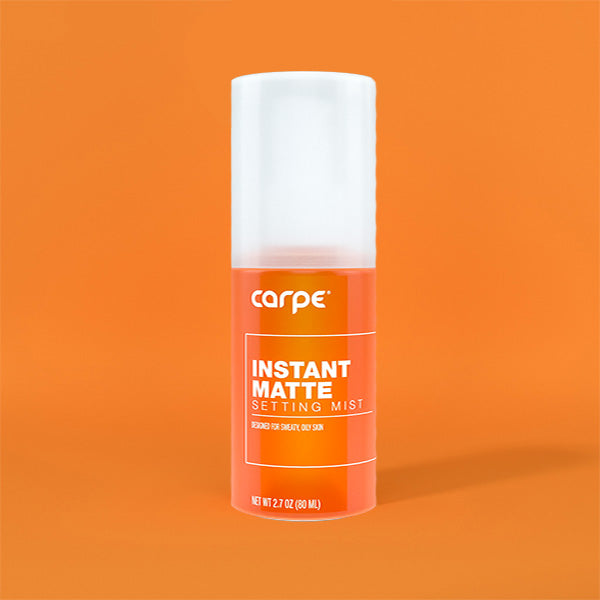Secondary generalized hyperhidrosis is often a surprise, people who have otherwise been healthy adults suddenly have a significant sweating problem. This is called diaphoresis, or excessive sweating with no apparent cause. This is unlike primary focal hyperhidrosis, which often begins in adolescence and is a problem patients struggle with for the majority of their lives. A review in 2011 found that 93% of people diagnosed with hyperhidrosis struggle with the primary type - that means that only 7% of cases are comprised of secondary hyperhidrosis. However, when patients are diagnosed with secondary hyperhidrosis, it is imperative that the cause is found because it can often be a dangerous medical condition. This is because secondary hyperhidrosis can be caused by several medical conditions and diseases. Ironically though, medication side-effects are the most common cause of secondary generalized hyperhidrosis.[1] That means that most people who are diagnosed with secondary hyperhidrosis are being treated for another condition and the medication they are taking caused them to begin sweating in excess of what is considered normal. It is vital that a patient who suddenly displays hyperhidrotic symptoms starting in adulthood manage hyperhidrosis with a doctor to determine whether it is caused by a medication or another underlying medical condition.
If a patient suspects that the cause of their excessive sweating is a result of a medication then it is important to discuss this with a qualified doctor and discuss a plan of action. Below is a list of common medications that can cause secondary hyperhidrosis:
Types of Medication that Cause Secondary Hyperhidrosis
There are many types of medication that can potentially cause hyperhidrosis that treat a variety of conditions. Here is a list of medicines that can potentially cause excessive sweating:
Pain Medications:
Most of the pain medications that can cause hyperhidrosis as a side-effect are prescription drugs. However, in some instances, excessive sweating has been caused by the over-the-counter medicines Tylenol and Aleve.[1][2] Here is a list of several prescription pain medications that can cause excessive sweating:
- Opiates like: Hydrocodone/Vicodin, Morphine, Oxycodone/Roxicodone, Fentanyl/Duragesic, Ultra/Tramadol
- NSAIDs like: Toradol/Ketorolac, Celebrex, Relafen/Nabumetone
- Other pain medications: Marinol (made from cannabinoids)
Psychiatric Medications
Many psychiatric drugs can have secondary hyperhidrosis as a possible side effect. These medications include SSRIs, antipsychotics, ADHD medications and anxiolytics. Here is a list of these medications:
- Antidepressants, antipsychotics and anxiolytics: Elavil/Amitriptyline, Buspar/Buspirone, Tegretol/Carbamazepine, Celexa/Citalopram , Clozaril/Clozapine, Norpramin/Desipramine, Migranal/Ergotamine, Aricept/Donepezil, “Cymbalta/Duloxetine, Lexapro/Escitalopram, Lunesta/Eszopiclone, Prozac/Fluoxetine, Haldol/Haloperidol, Sinemet/Levodopa, Provigil/Modafinil
- ADHD medication: Adderall/Amphetamine
Hormonal Medications
Hormonal medicines, including many birth controls for women, can cause excessive sweating as a side effect. This list also includes steroids and other agents. Here is a list:
- Birth Control: Depo-provera,
- Other hormonal medications: Calcitonin/Fortical, Syntrhoid/Thyroid (for hypothyroidism), Evista/Raloxifene, Genotropin/Somatroin, Testoterone/Androgel, Antibodies/Tositumomab (cancer therapy)
- Diabetes Medications: Glucotrol/Glipizide, Insulin/Humilin, Vasopressin/Pitressin
- Common Steroid Medications: Prednisone/Orapred
Skin Medications
There are several types of skin medication used to treat a variety of conditions, some of which cause hyperhidrosis as a side effect, these include:
- Topical steroids
- Acne Medicine: Accutane/Isoltretinoin
- Numbing Medicine: Lidocaine/Carbcaine
- Other: Selsun/Selenium sulfide
Antibiotics
Antibiotics are used to treat bacterial infections, and despite being commonplace and saving lives, can cause hyperhidrosis. Here is a list of antibiotics that may do this:
- Acyclovir/Zovirax, Rocephin/Ceftriaxone, Cipro/Ciprofloxacin, Sustiva/Efavirenz, Foscavir/Foscarnet, Tequin/Gatifloxacin, Avelox/Moxifloxacin, Ketek/Telithromycin, Ribavirin/Copegus, Retrovir/AZT
The list above is not a complete list of all the medications that can cause secondary hyperhidrosis, just the most common. There are several other classes of medications that have certain drugs which can cause diaphoresis including certain cancer medications, heart and blood pressure medications, GI medications, blood and immune medications, lung medications, and genitourinary medications. The specific names of these medications was not included as they are less common, but if a patient is on a medication to treat one of these conditions and they suspect secondary hyperhidrosis they should consult a doctor.[1]
Options for Dealing with Medication-induced Hyperhidrosis
The most obvious solution for treating hyperhidrosis caused by a medication is to stop taking it. However, that is not always a viable option for certain patients. Some patients may need to continue taking the offending medication because it will be further deleterious for their health to stop taking it.[3] For example, a psychiatric patient may find it necessary to take medicine which causes hyperhidrosis in order to continue functioning. In this situation, discontinuing the causative drug is not in the best interest of the patient. This type of patient may benefit from taking another oral medication used to treat hyperhidrosis. While there are other therapies for treating hyperhidrosis, they are targeted at specific problem areas, and typically secondary hyperhidrosis occurs all over the body so a systemic approach is more appropriate. The medications most often used to treat excessive sweating in this situation are called anticholinergics. Most commonly doctors use either glycopyrrolate or oxybutynin if they are going to prescribe an anticholinergic.[1] There are many other situations like the example given above in which a patient may be at a higher risk from discontinuing their medication than from treating its side-effect.
Withdrawal from Medication or Drugs
In some cases, secondary hyperhidrosis is not caused directly by taking a medication but by not taking it. This occurs after a person becomes physically dependant on a drug or medication. Most commonly people can experience hyperhidrosis symptoms due to withdrawing from alcohol, and occasionally other substances. It can also be a symptom of intoxication from alcohol as alcohol is known to exaggerate excessive sweating. [4] Withdrawal can be a challenging and it is important to get medical supervision.
It is important for patients to manage hyperhidrosis with a doctor, especially if they suspect the onset may be due to a medication. The positive thing about hyperhidrosis induced by a medication is that there may be a simple solution to fix it, and for those who cannot stop taking their medications there are other drugs which can alleviate their symptoms.
Sources
- Pariser, D. M. (2014). Hyperhidrosis (4th ed., Vol. 32). Philadelphia, PA: Elsevier.
- Common Drugs/Medications Known to Cause Diaphoresis Listed by Therapeutic Class. (n.d.). Retrieved August 7, 2018, from https://www.sweathelp.org/pdf/Diaphoretic_Class.pdf
- Cheshire, W. P., & Fealy, R. D. (2008). Drug-induced hyperhidrosis and hypohidrosis: Incidence, prevention and management. Drug Safety, 31(2), 109-126. Retrieved August 6, 2018, from https://www.ncbi.nlm.nih.gov/pubmed/18217788.
- Paisly, A. N., & Buckler, H. M. (2010). Investigating secondary hyperhidrosis. BMJ : British Medical Journal, 341. doi:DOI:10.1136/bmj.c4475






16790753702383.jpg?v=1679075372)

16790746985853.jpg?v=1679074700)


16790757289763.jpg?v=1679075731)












